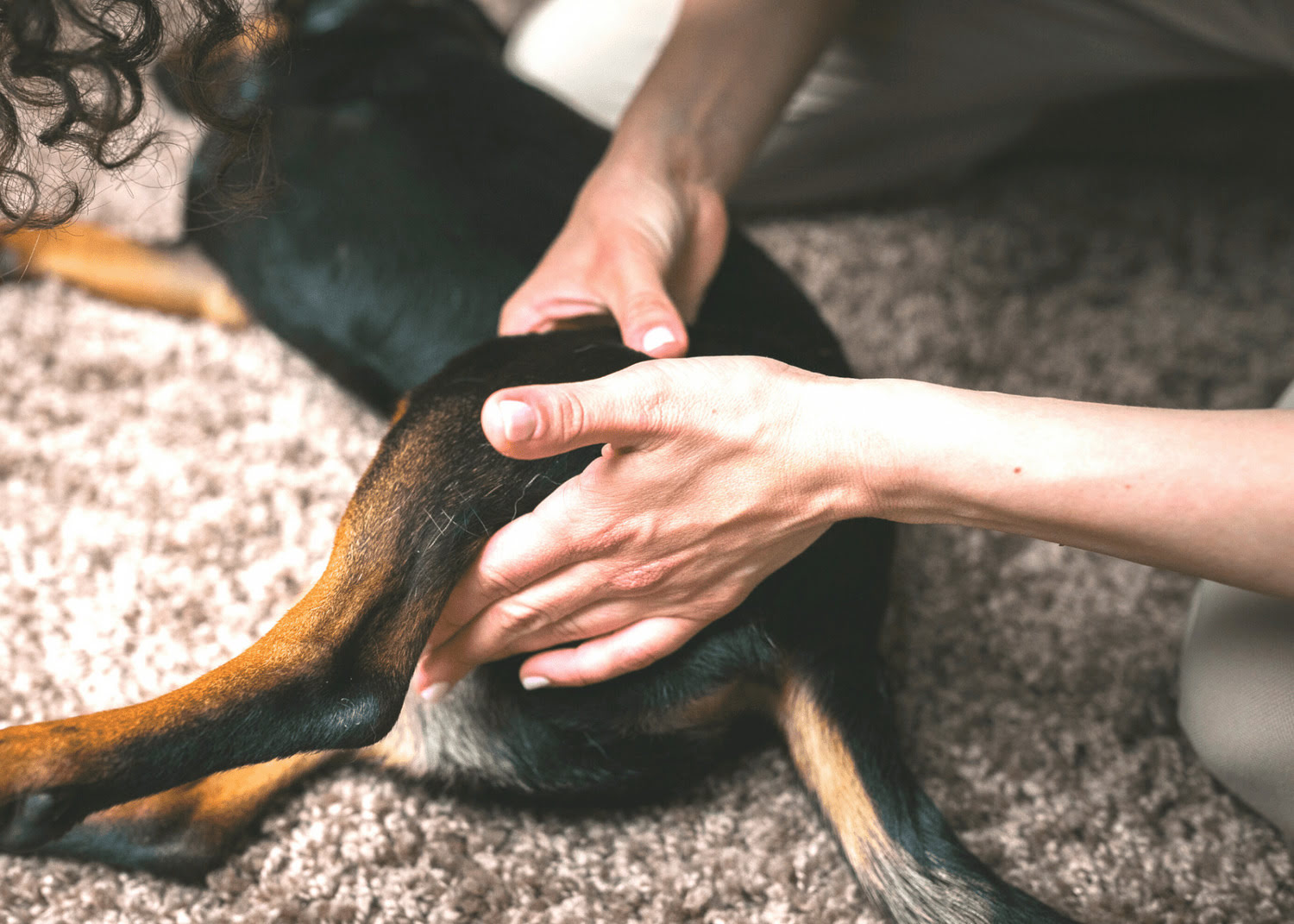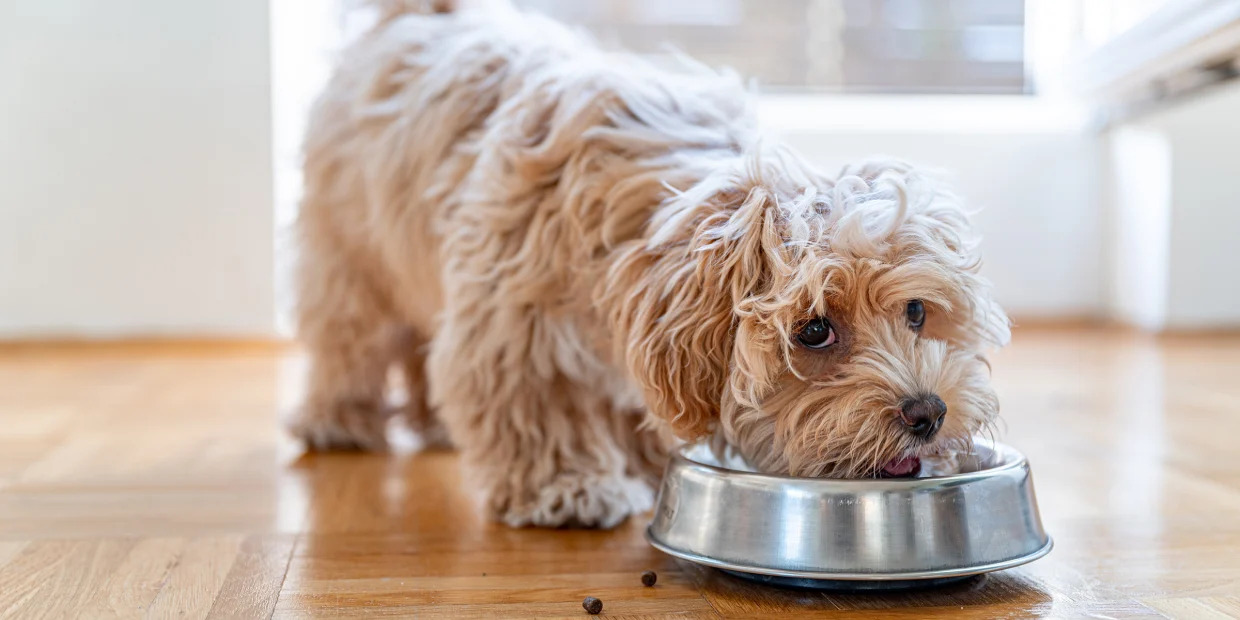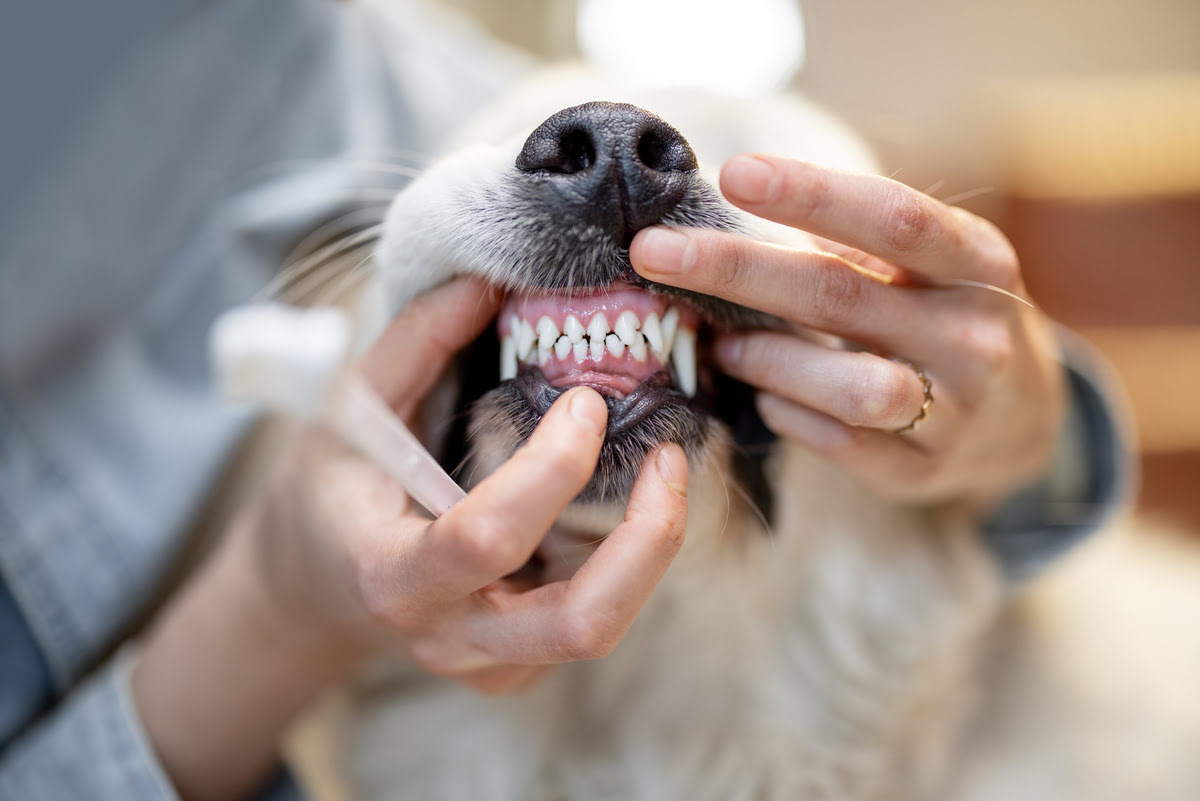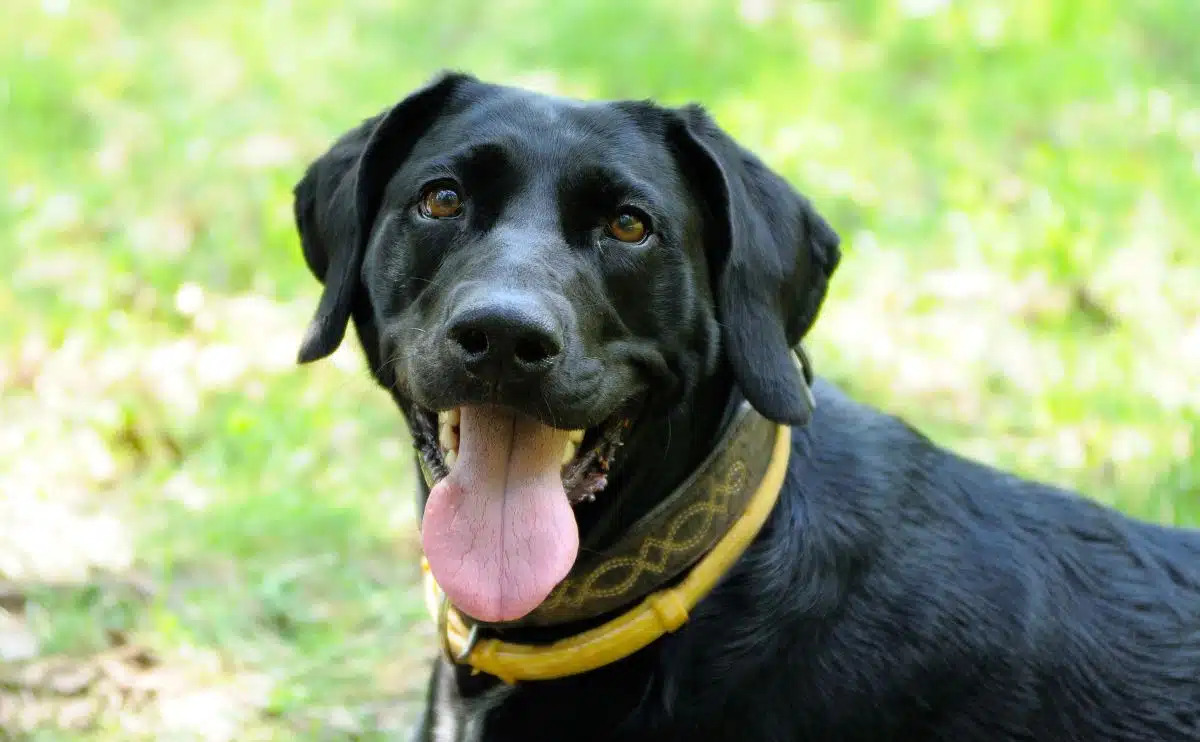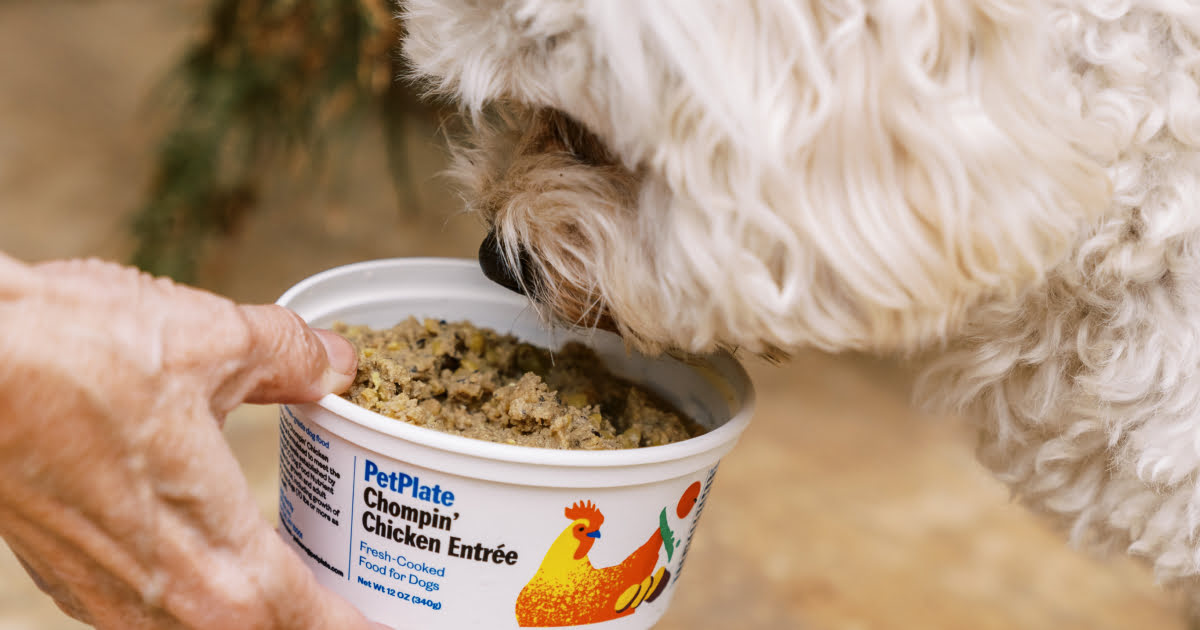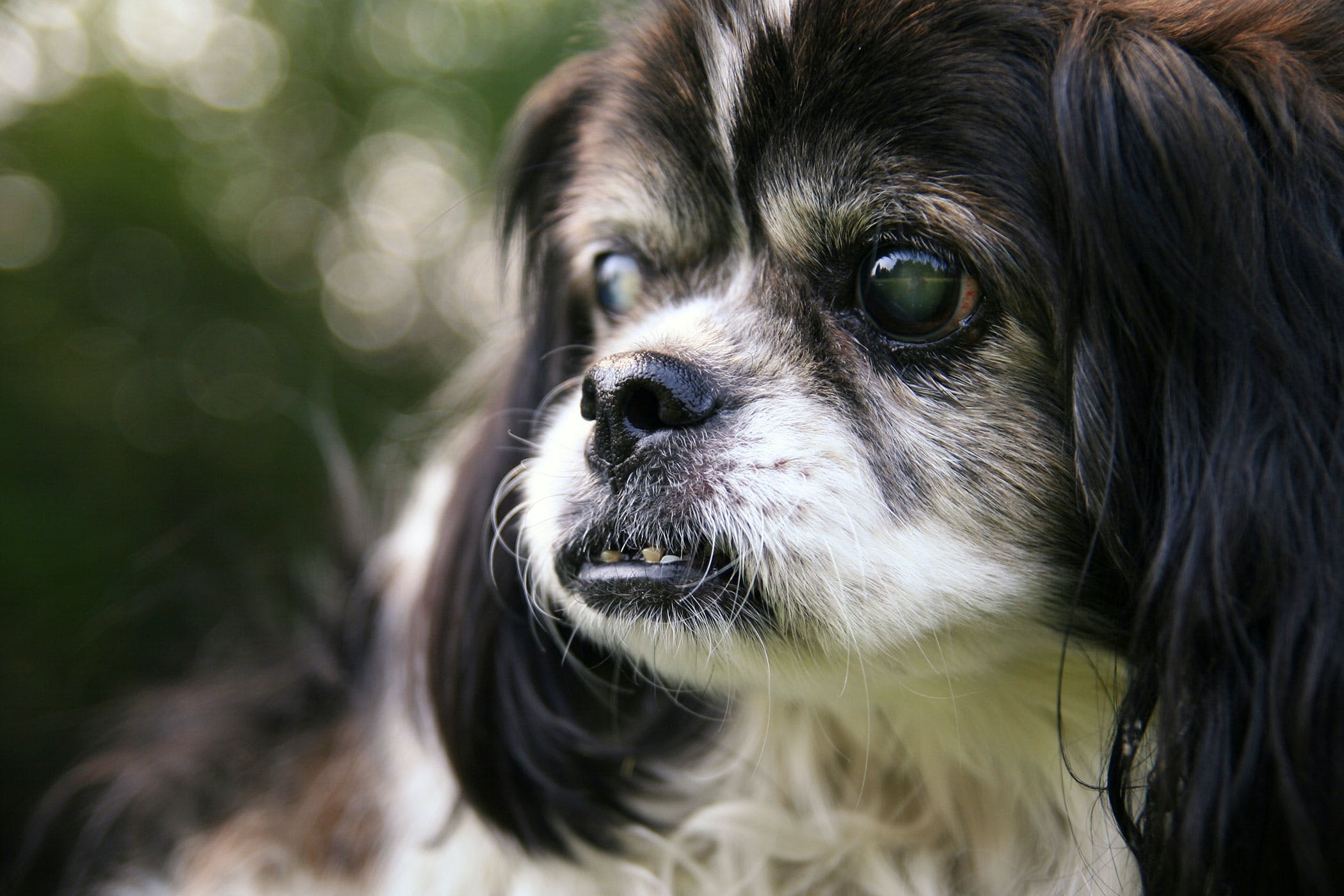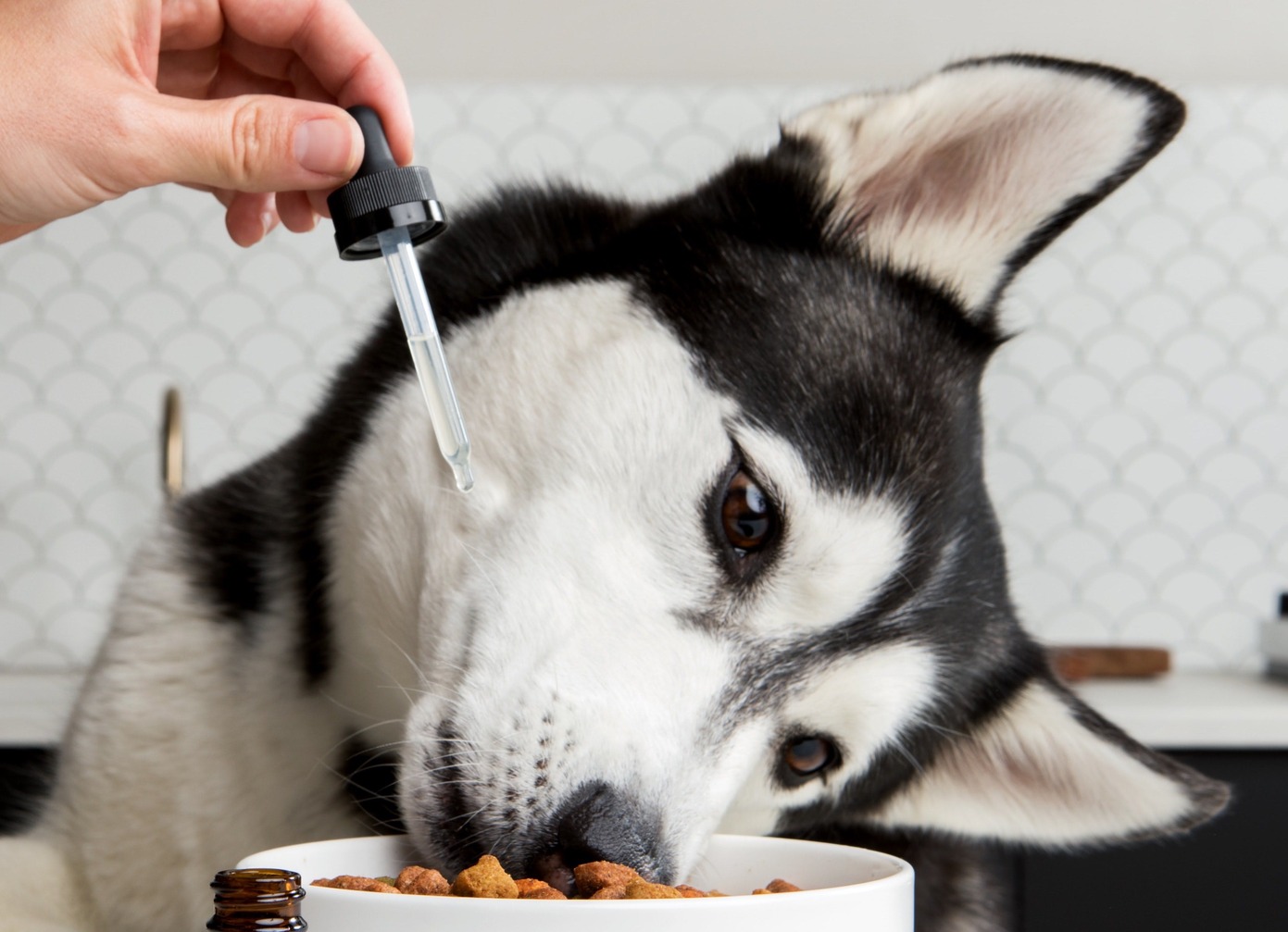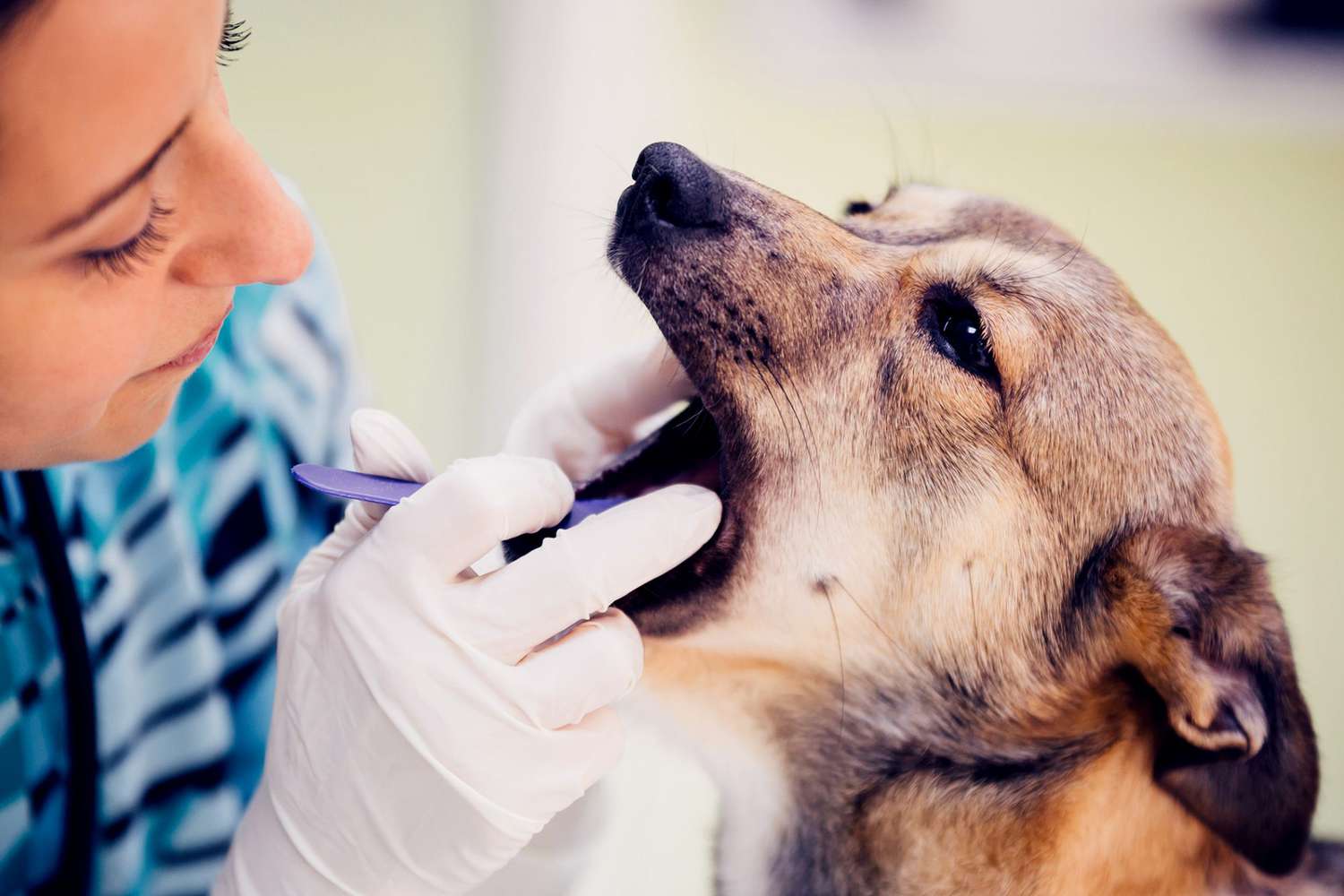Home>Health & Wellness>Common Health Issues>What Is The Best Thing To Give A Senior Dog For Dental Plaque
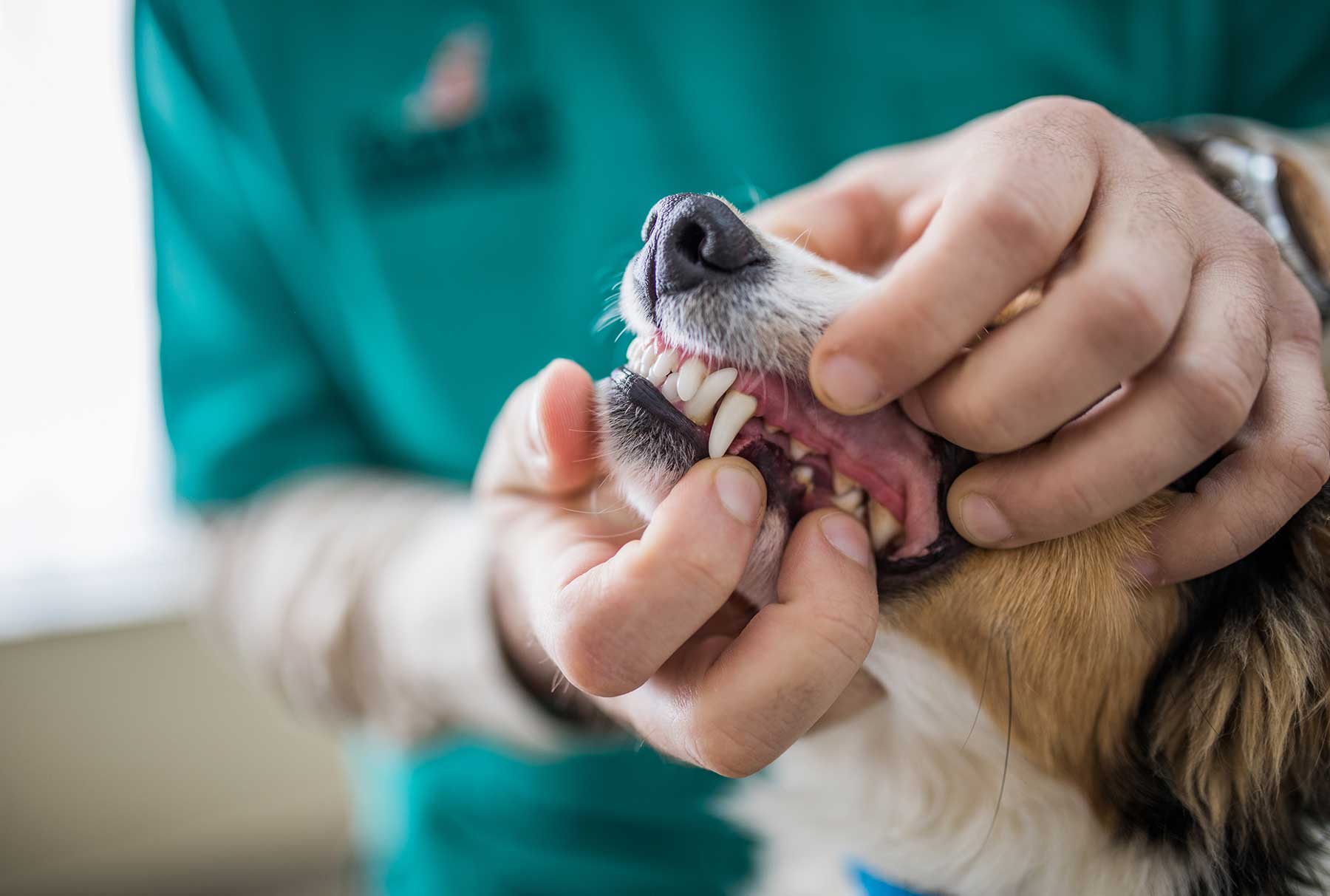

Common Health Issues
What Is The Best Thing To Give A Senior Dog For Dental Plaque
Published: January 31, 2024
Discover the best solutions for senior dog dental plaque and other common health issues. Learn how to improve your pet's oral health and overall well-being.
(Many of the links in this article redirect to a specific reviewed product. Your purchase of these products through affiliate links helps to generate commission for Pawsomeoldies.com, at no extra cost. Learn more)
Table of Contents
Introduction
As our furry companions age, they may encounter various health issues, and one common concern for senior dogs is dental plaque. Just like humans, dogs can develop plaque and tartar buildup on their teeth, leading to dental problems and discomfort. Addressing dental plaque in senior dogs is crucial for maintaining their overall health and well-being.
Dental care is an essential aspect of senior dog healthcare, and understanding the best ways to manage dental plaque is vital for pet owners. In this article, we will delve into the significance of dental care for senior dogs and explore the most effective options for treating and preventing dental plaque. Additionally, we will discuss natural remedies that can aid in maintaining your senior dog's oral health.
By gaining insights into the management of dental plaque in senior dogs, pet owners can provide the best possible care for their beloved companions, ensuring they enjoy a comfortable and healthy life in their golden years. Let's embark on this journey to discover the best practices for addressing dental plaque in senior dogs and promoting their overall well-being.
Understanding Dental Plaque in Senior Dogs
Dental plaque is a common issue that affects many senior dogs, and understanding its nature is essential for effective management. Plaque is a sticky, colorless film of bacteria that forms on the teeth, particularly along the gum line. When left untreated, plaque can mineralize and harden into tartar, leading to various dental problems such as gum disease, tooth decay, and bad breath.
Senior dogs are more susceptible to dental plaque due to factors such as age-related changes in saliva composition, decreased immune function, and the accumulation of years of plaque buildup. Additionally, certain breeds may be predisposed to dental issues, making regular dental care even more crucial for senior dogs.
It's important to recognize the signs of dental plaque in senior dogs, which may include bad breath, yellow or brownish discoloration on the teeth, inflamed gums, and reluctance to eat or chew. These symptoms can indicate the presence of dental plaque and should prompt pet owners to take proactive measures to address the issue.
Regular dental check-ups with a veterinarian are essential for senior dogs to assess the extent of plaque buildup and determine the appropriate course of action. In some cases, professional dental cleaning under anesthesia may be necessary to remove stubborn tartar and address any underlying dental issues.
Understanding the nature of dental plaque in senior dogs empowers pet owners to take proactive steps in preventing and managing this common issue. By recognizing the signs of plaque buildup and seeking professional guidance, pet owners can ensure that their senior dogs maintain optimal oral health, contributing to their overall well-being and quality of life.
Importance of Dental Care for Senior Dogs
Dental care holds immense significance in the overall well-being of senior dogs. As our furry companions age, they become more susceptible to dental issues, making proactive dental care a crucial aspect of their healthcare routine. The importance of dental care for senior dogs extends beyond maintaining oral hygiene; it directly impacts their overall health and quality of life.
Senior dogs are prone to dental plaque and tartar buildup, which can lead to various oral health problems, including gum disease, tooth decay, and discomfort. Left untreated, these issues can escalate, causing pain and affecting the dog's ability to eat, play, and enjoy life to the fullest. Moreover, dental problems in senior dogs can have systemic effects, impacting vital organs such as the heart, liver, and kidneys. This underscores the interconnectedness of oral health with the dog's overall physical well-being.
Proactive dental care for senior dogs involves regular brushing, professional dental check-ups, and appropriate dental treatments as recommended by veterinarians. By prioritizing dental care, pet owners can prevent the progression of dental issues, alleviate discomfort, and enhance their senior dogs' quality of life. Additionally, maintaining good oral hygiene can contribute to the prevention of other health issues, as dental problems in senior dogs have been linked to systemic conditions such as heart disease and diabetes.
Furthermore, proper dental care for senior dogs can prolong their lifespan and promote vitality in their golden years. By addressing dental plaque and maintaining oral health, pet owners can ensure that their senior dogs remain active, happy, and free from the discomfort associated with dental problems. This proactive approach to dental care aligns with the goal of providing comprehensive and compassionate care for senior dogs, allowing them to age gracefully and enjoy a high quality of life.
In essence, the importance of dental care for senior dogs cannot be overstated. It is a fundamental aspect of senior dog healthcare that directly impacts their comfort, health, and longevity. By recognizing the significance of dental care and integrating it into their senior dogs' wellness routines, pet owners can make a profound difference in their beloved companions' lives, ensuring that they thrive in their senior years.
Best Options for Treating Dental Plaque in Senior Dogs
When it comes to addressing dental plaque in senior dogs, several effective options are available to pet owners. These options aim to manage existing plaque, prevent further buildup, and promote optimal oral health for senior canine companions. By exploring these best treatment options, pet owners can make informed decisions to ensure the well-being of their senior dogs.
-
Professional Dental Cleaning:
Professional dental cleaning performed by a veterinarian is a highly effective option for treating dental plaque in senior dogs. This procedure involves the removal of plaque and tartar through scaling and polishing, often under general anesthesia. Professional dental cleaning not only addresses existing plaque but also allows for a comprehensive assessment of the dog's oral health, enabling the identification and treatment of any underlying dental issues. -
Dental Chews and Toys:
Dental chews and toys designed specifically for oral health can aid in managing dental plaque in senior dogs. These products are formulated to promote chewing and gnawing, which can help reduce plaque and tartar buildup. Additionally, some dental chews contain enzymes or additives that contribute to oral hygiene, further supporting senior dogs' dental health. -
Prescription Dental Diets:
Prescription dental diets recommended by veterinarians can be beneficial in treating dental plaque in senior dogs. These specialized diets are formulated to address oral health concerns, featuring kibble texture and composition that facilitate mechanical cleaning of the teeth. Furthermore, some prescription dental diets contain ingredients that help reduce plaque and tartar accumulation, promoting improved oral hygiene in senior dogs. -
Regular Brushing with Canine Toothpaste:
Implementing a regular brushing routine using canine toothpaste is a fundamental and proactive approach to managing dental plaque in senior dogs. Brushing the dog's teeth with a soft-bristled toothbrush helps remove plaque and prevent tartar formation. It is essential to use toothpaste specifically formulated for dogs, as human toothpaste can be harmful to canine companions. By incorporating regular brushing into the senior dog's care regimen, pet owners can contribute significantly to their oral health. -
Dental Water Additives:
Dental water additives are a convenient and supplementary option for addressing dental plaque in senior dogs. These additives are designed to be mixed with the dog's drinking water, promoting oral hygiene by targeting plaque-forming bacteria. Dental water additives can serve as a valuable complement to other dental care measures, contributing to the prevention of plaque buildup and supporting senior dogs' overall oral health.
By considering these best options for treating dental plaque in senior dogs, pet owners can take proactive steps to manage and prevent dental issues in their beloved companions. Each of these options offers unique benefits and can be integrated into a comprehensive dental care plan tailored to the specific needs of senior dogs. Prioritizing dental health through these effective treatment options is essential for promoting the comfort, well-being, and vitality of senior canine companions.
Natural Remedies for Dental Plaque in Senior Dogs
In addition to conventional treatment options, natural remedies can play a valuable role in managing dental plaque in senior dogs. These remedies, often derived from natural ingredients and practices, offer pet owners alternative approaches to support their senior dogs' oral health. Incorporating natural remedies into a comprehensive dental care routine can complement existing treatments and contribute to the overall well-being of senior canine companions.
Coconut Oil
Coconut oil has gained recognition for its potential oral health benefits in dogs. Its antimicrobial properties can help combat the bacteria responsible for plaque formation. By introducing coconut oil into a senior dog's diet or applying it directly to the teeth and gums, pet owners can support oral hygiene and potentially reduce plaque buildup. Additionally, the act of chewing on coconut oil-infused treats or toys can aid in promoting dental health, making it a versatile and natural remedy for addressing dental plaque in senior dogs.
Herbal Dental Sprays
Herbal dental sprays formulated with natural ingredients such as neem, peppermint, and aloe vera can serve as a non-invasive and aromatic approach to supporting senior dogs' oral health. These sprays are designed to target plaque-forming bacteria and promote fresh breath while providing a convenient and natural alternative to traditional oral care products. Regular application of herbal dental sprays can contribute to maintaining oral hygiene in senior dogs, offering a gentle and holistic approach to addressing dental plaque.
Raw Bones
Raw bones, particularly raw meaty bones, can be beneficial for senior dogs' dental health. Chewing on raw bones can help naturally scrape away plaque and tartar, promoting dental hygiene through mechanical action. Additionally, the act of gnawing on raw bones can provide mental stimulation and contribute to overall dental well-being. It is important to note that raw bones should be offered under supervision and in appropriate sizes to ensure safe chewing and prevent potential dental injuries.
Carrot and Apple Slices
Crunchy fruits and vegetables such as carrot and apple slices can serve as natural dental aids for senior dogs. The fibrous texture of these produce items can help clean the teeth and massage the gums, potentially reducing plaque accumulation. Furthermore, the natural enzymes present in these fruits and vegetables may contribute to oral hygiene, offering a healthy and natural way to support senior dogs' dental health. Incorporating carrot and apple slices into the senior dog's diet as occasional treats can provide both nutritional and dental benefits.
Read more: How Often To Give Dog Dental Chew
Green Tea
Green tea, when used in moderation and in a diluted form, may offer oral health benefits for senior dogs. The natural antioxidants and polyphenols present in green tea can help combat bacteria and reduce plaque formation. By incorporating green tea into the senior dog's drinking water or using it as a mouth rinse, pet owners can explore a natural and gentle approach to promoting oral hygiene. It is essential to consult with a veterinarian before introducing green tea to a senior dog's diet to ensure suitability and proper administration.
By integrating these natural remedies into the dental care regimen for senior dogs, pet owners can take proactive steps to manage dental plaque and support their beloved companions' oral health. These natural approaches, when used in conjunction with professional veterinary guidance and conventional treatments, can contribute to a holistic and comprehensive approach to addressing dental plaque in senior dogs, promoting their comfort, well-being, and vitality in their golden years.
Conclusion
In conclusion, addressing dental plaque in senior dogs is a vital aspect of their overall health and well-being. As our canine companions age, they become more susceptible to dental issues, making proactive dental care essential for maintaining their comfort and vitality. By understanding the nature of dental plaque, recognizing its signs, and exploring effective treatment options, pet owners can ensure that their senior dogs receive the best possible care for their oral health.
The importance of dental care for senior dogs cannot be overstated. Dental plaque and tartar buildup can lead to various oral health problems, causing discomfort and potentially impacting the dog's overall physical well-being. Proactive dental care, including regular brushing, professional cleanings, and the use of specialized dental products, plays a crucial role in preventing the progression of dental issues and promoting optimal oral hygiene in senior dogs.
Moreover, natural remedies can complement conventional treatments, offering pet owners alternative approaches to support their senior dogs' oral health. From coconut oil and herbal dental sprays to raw bones and crunchy fruits, these natural remedies provide gentle and holistic ways to address dental plaque and contribute to the overall well-being of senior canine companions.
By prioritizing dental care and integrating both conventional and natural approaches, pet owners can ensure that their senior dogs enjoy a comfortable and healthy life in their golden years. This proactive approach to dental care aligns with the goal of providing comprehensive and compassionate care for senior dogs, allowing them to age gracefully and thrive in their senior years.
In essence, addressing dental plaque in senior dogs is a multifaceted endeavor that requires a combination of awareness, proactive measures, and a holistic approach to oral health. By embracing the significance of dental care and implementing the best practices discussed in this article, pet owners can make a profound difference in their beloved companions' lives, ensuring that they receive the best possible care for their oral health and overall well-being.

